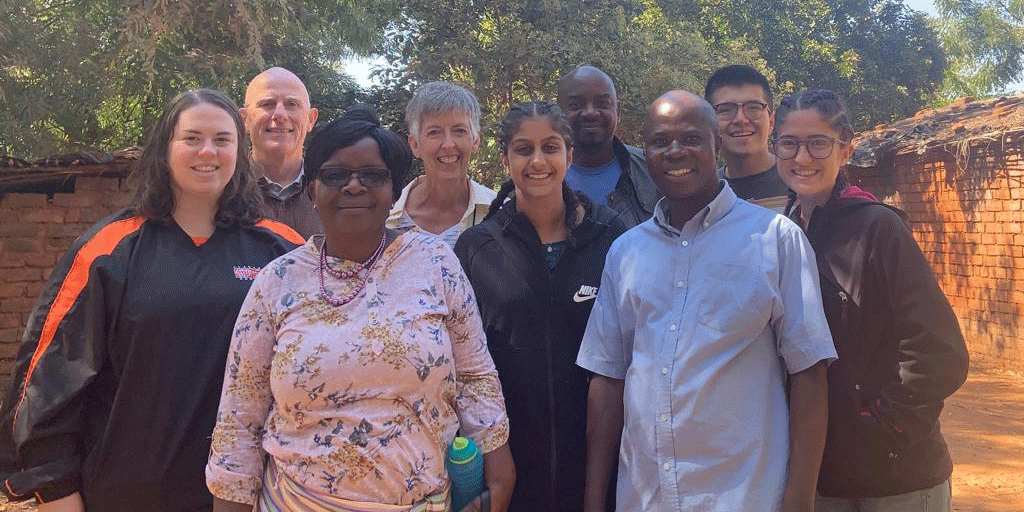Learning more about Malawi and noting our successes

July 14 – 19
Our fifth week was a busy one. We started the week visiting and learning about Never Ending Food,a permaculture farm. Never Ending Food was started by Stacia Nordin, Nutrition Education Specialist at SANE, and her husband Kristoff. The ethics of permaculture are care for the earth, care for the people, and share equally of all resources. Never Ending Foodtruly embodies these ethics with the food they grow and share. They work with nature in sustainable ways. Water for handwashing is returned to the soil to water plants, leftover food is composted with worms, and mulch provides protection for the soil. They even utilize a composting toilet system. Overall, we were all very impressed by the farm which grows several hundred crops and is home to goats, chicken, rabbits, and fish.
After our tour on Sunday, we were in the office for the rest of the week. We had three main tasks, a presentation for agriculture extension services and the Ministry of Agriculture, a paper on our work, and a poster for the College of ACES OIP. The three of us began by compiling the data we collected from the previous weeks in the field. We created tables to organize the data and graphs to visualize it. We completed our presentation and used that as an outline for our paper. Overall, we reached over 3,000 farmers! We identified challenges from our work as well as successes. We also made recommendations for future use of the videos as a form of extension services. We concluded that using the videos is a great way to reach multiple farmers at a time and should definitely continue in the future.
On Tuesday, we had the opportunity to go on an educational tour of the tobacco trading floors in Malawi. Tobacco is Malawi’s number one export. The tobacco is grown mainly by smallholder farmers and is sold in bales that are approximately 100 pounds. Tobacco receives a grade based on its quality, which effects the price. There are 7 companies that purchase the tobacco at the trading floors. The process is done very quickly in an auction-style manner. Bidders use hand signals to communicate with the auctioneer. Over 11,000 bales were being sold the day that we visited. I was surprised at how many people are needed for work at the floors. From people moving the bales, quality control, opening and closing the bales, grading the tobacco, tracking bids, and so much more. I was amazed and impressed by the process.
I am excited for our plans for our final week, but also sad that our time in Malawi is coming to an end.
This summer, the Office of International Programs is sponsoring three undergraduate Food Security Fellows who are participating in experiential learning experiences related to global food security. These ACES students are based in Malawi and will be blogging regularly during their experience.
Specifically, the students will be working with the ACES-based and USAID-funded Strengthening Agriculture and Nutrition Extension activity to deliver a video-extension campaign to smallholder farmers. Working with counterparts from Malawi, our students will provide technical support for the video work and collect data to evaluate the success of the campaign. They will gain on-ground appreciation for how rural development actually works and how a development project functions.
The ACES undergraduate Food Security Fellows are:
- Christina Fernandez, senior in natural resources and environmental sciences
- Kristin Iverson, senior in agricultural leadership and education
- Anoosha Memon, senior in agricultural and consumer economics